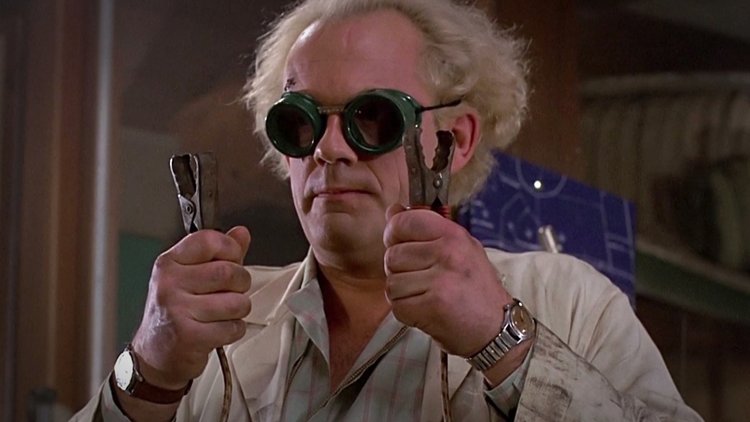Creating a goal is a great task and is really the key to making sure you’re heading towards your best life. But the biggest issue that I have trouble with and have heard from others is creating a goal that is realistic and makes you feel accomplished.
I’ve always been a goal setter, but to be honest I’ve either not followed through with them or accomplished them too easily and didn’t feel energized.
I tried a different approach last year when I tasked myself with creating my SEO course. This project was going to take me about 8 or so months to complete and I have never done anything like this before. I wasn’t too bad when it came to completing small goals on a week-to-week basis or even on a monthly basis but never on a long-term goal like this one. However, whether you’re great at accomplishing them or not it really doesn’t matter because it’s all a learning process.
So grab a nice cup of tea or coffee, sit back, and let’s take a look at what I did to create a system that helped me get through a long-term goal.
If you’re in a rush or want the TL;DR version then click here!

Some rules to think about before goal creating
I will say that before we jump into creating goals that you first set up your own rules. Rules are great to set expectations. It helps you also understand if you’re setting yourself up for something realistic where you’ll be happy or something totally unreasonable. Let’s dig into this further to see what I mean.
- You are allowed to change your goal if you are not seeing it as a good fit and you’re unhappy. I know this sounds a little crazy to allow yourself to change your goal if you don’t like it but the point of this is you aren’t always going to nail the right goal. It takes practice and I found it’s helpful to think of it as a constant experiment where you’re seeing what works and what doesn’t work. Pretend you’re the scientist and the lab rat.
- Commit to attempting your goal once a week. This idea behind this rule is to get you to commit to the hardest part of goal setting and goal completion which is getting started.
- Remind yourself why this goal is important to you as often as possible.

That’s all the rules I gave myself. You can change these rules or add more, it’s really up to you. What I would suggest is to think about what rules will help me make this easy for me and allow me to move forward towards getting my goal done. If you create too many rules that put you on this tightrope then you’re more likely to not be happy with yourself and ultimately abandoning the goal. So don’t put pressure if you can’t think of any great rules just use mine as a starting point and go from there. It’s all a learning experience!
How I started to create goals for the SEO course project
My goal was to create an SEO course for my website and as long as I felt proud of the work that I would feel it was a success. The idea was to try and help people and to challenge me in putting a course together. So how did I create goals for this ambitious goal?
The first thing I did was write down my goal.
Examples:
- Complete SEO Course by end of year
- Be able to have a conversation in Spanish with someone in 2 months
- Publish my first ebook by end of year
To help guide you in figuring out if your goal is on point ask yourself these questions:
- Does my goal have a deadline?
- Does my goal make me feel excited when I think about accomplishing it?
- Do I need to depend on anyone or thing to complete this goal?
Action item: Take 5 minutes and write down your goal
Create sub-goals for your main goal
Your goal may not be on writing content but having sub-goals is still useful to find out what pieces you’ll need.
If your goal is to learn Spanish or make a music album it’ll need to be broken down. Let’s take my SEO course as an example. This is exactly what I scribbled down after I outlined what my lessons were going to be.
- March – outline goals for each lesson – map it out
- April – write 1/4 of content
- May – write 2/4
- June – write 3/4
- July – write 4/4
- August – edit / add photos / assets
- September edit / add photos /assets
- October – Test / Feedback / re-write
- November – launch
What you may have noticed about the goals I wrote down is they are specific enough to know what I’m looking to get accomplished but also gives me some breathing room. I probably could have made my goals on editing photos more specific but like I mentioned before it’s a learning process.
You aren’t going to nail every part perfectly and that’s absolutely okay. The point is to give you as much structure as possible so when you’re feeling stressed or frustrated that you can refer to your goals and sub-goals to re-energize you and get you back on track.
It’s also why I think it’s important to ask yourself if completing this goal will make me happy and excited. I generally pick goals that I think will help me in the future and make life easier for me.
So take some time now and write down sub-goals for your main goal. Break it down as specific as you can but give yourself breathing room for the deadline. Worst case scenario you complete your goal earlier than you expected and you can give yourself a high-five. Plus, you can also take this as a good takeaway to adjust the timeline for your future goals.
Action item: Take 10 minutes and write down your sub-goals
Setting a weekly goal to push you forward

Awesome job if you’ve created your goal and sub-goal! If not try your best to get to it as soon as you can. The next step is figuring out how to move forward. This is where weekly goals come into play. I find that in a week lots can happen and we all get busy. However, if you give yourself a good weekly goal you’ll accomplish the sub-goal and main goal in no time.
The main idea here is what is the minimum amount of work that I need to do this week to make me feel happy that I accomplished it as well as give me a good chance to get my momentum going?
Here’s my weekly goal:
- Spend at least 30 minutes writing each week
You may be asking yourself, “how is that going to get you to get you anywhere with your goal?” Well, what I discovered is 30 minutes was enough for me to get myself started and once I was going I ended up writing anywhere from 1-4 hours. That’s honestly the biggest learning for me.
There were days where I was anxiously waiting for that 30-minute timer to go off because I didn’t have the energy that week to write or focus. That will happen and it’s completely normal.
However, I was surprised by how effective that was for me. It didn’t take a lot out of my day. It was long enough to get me going and short enough that it didn’t feel like an eternity to get through it and demotivate me from the whole thing.
I will say that it’s really the key part of this whole process. Without a good weekly goal to keep you moving forward you’ll be playing catch up or you’ll get overwhelmed with trying to take on the sub-goal or main goal. The idea is not to focus so intently on completing the main goal but to focus on the weekly goal. A few things happen when you complete your weekly goal:
- You feel productive and happy with yourself. This effect should not be underestimated. It does wonders for your psyche and keeps you motivated.
- You surprise yourself when you look back at the clock and you just spent a few hours on the task.
- The momentum of consistently completing a weekly goal builds more confidence in knowing you can do this
That being said, let’s take some time now and write down a weekly goal.
Action item: Take 5 minutes and write down your weekly goal
Recap on setting goals or TL;DR version
Here’s the recap to bring it all home.
- Create a goal you’d like to complete in a year – write it down.
- To make it more manageable create sub-goals for your main goal. Make it specific but give yourself breathing room.
- Create a weekly goal. The main idea is the shortest amount of time you want to commit to the task that will make yourself happy that you did it and allows you to get your momentum going.
The last piece of knowledge I’ll leave with you is the different types of yearly goals you can make.
- Personal development – this is a goal that will help you in your career or help make you more valuable
- Hobby goal – a goal based on your hobbies (outside your career) to keep it fun and help you try something different. Maybe it’s traveling overseas or learning how to play the guitar.
- Toy/Fun goal – this is something you want to save up for and buy. This could be a really expensive digital camera that you always wanted or that new expensive chef knife that was always out of your budget.
- Charity goal – a goal that gives back to the community. It’s a humbling experience and something people sometimes forget but does a lot of good for the world.
Feel free to email me if you have any questions or trouble. If you were able to do all the action items in this post then I would strongly suggest treating yourself to something wonderful and fun. It’s this type of work that shows us how capable and amazing we can be.
I hope this helps you and I wish you the best of luck on your journey to finding a system that works for you to help you achieve your best life. Now go squash those goals!
